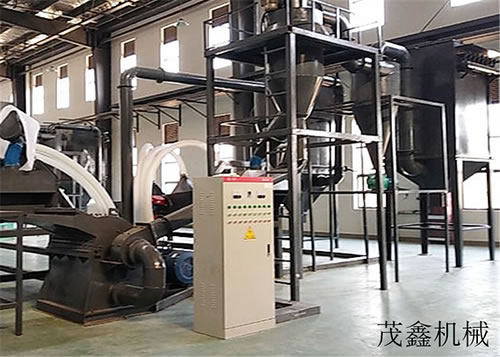Hard Material Crushing Technology in Indonesia: Efficient Recycling and Reuse of River Pebbles

Indonesia, an archipelago country with abundant rivers and coastlines, has been facing challenges in managing its natural resources effectively. One such challenge is the efficient recycling of river pebbles, which are commonly used as construction materials but often discarded after use. This article discusses the application of hard material crushing technology in Indonesia to address this issue and promote sustainable development.
River pebbles, also known as cobblestones or riverstones, are naturally occurring rocks that have been rounded by water erosion. They are widely used in construction projects such as roads, bridges, and buildings due to their durability and aesthetic appeal. However, once these projects are completed, the leftover pebbles are often considered waste and disposed of improperly, causing environmental pollution and resource wastage.
To tackle this problem, hard material crushing technology has emerged as a viable solution. This technology involves using advanced machinery to crush the discarded pebbles into smaller pieces that can be reused in various applications. The crushed material can be used as a substitute for natural sand in concrete production, reducing the demand for new aggregate sources and conserving natural resources. Additionally, it can be utilized in landscaping projects, such as gardens and parks, providing a cost-effective and eco-friendly alternative to traditional materials.
The implementation of hard material crushing technology in Indonesia requires careful planning and execution. Firstly, it is essential to identify suitable locations for setting up crushing plants near riverbeds or construction sites where pebbles are readily available. Secondly, selecting appropriate machinery capable of handling large volumes of pebbles efficiently is crucial. Finally, establishing proper waste management systems to ensure that the crushed material is transported and stored safely is necessary.

One successful example of hard material crushing technology in Indonesia is the Cikampek River Pebble Recycling Project. Located in West Java Province, this project aims to recycle approximately 1 million tons of river pebbles annually. The crushed material produced from this project is being used in various infrastructure projects throughout the region, including road construction and maintenance. Moreover, the project has created job opportunities for local communities and contributed to reducing environmental pollution caused by improper waste disposal practices.
Another notable initiative is the Green Construction Movement (GCM) in Bali Island. GCM promotes the use of recycled materials in construction projects to minimize environmental impact and promote sustainable development. Through collaboration with local governments and private sectors, GCM has successfully implemented several projects using recycled river pebbles as primary construction materials. These projects not only demonstrate the feasibility of using recycled materials but also serve as models for other regions looking to adopt similar practices.
In conclusion, hard material crushing technology offers a promising solution for the efficient recycling of river pebbles in Indonesia. By transforming discarded materials into valuable resources, this technology contributes to reducing waste generation, conserving natural resources, and promoting sustainable development. With continued efforts from stakeholders involved in implementing these projects, Indonesia can lead the way in responsible resource management and environmental conservation while achieving economic growth and social progress.